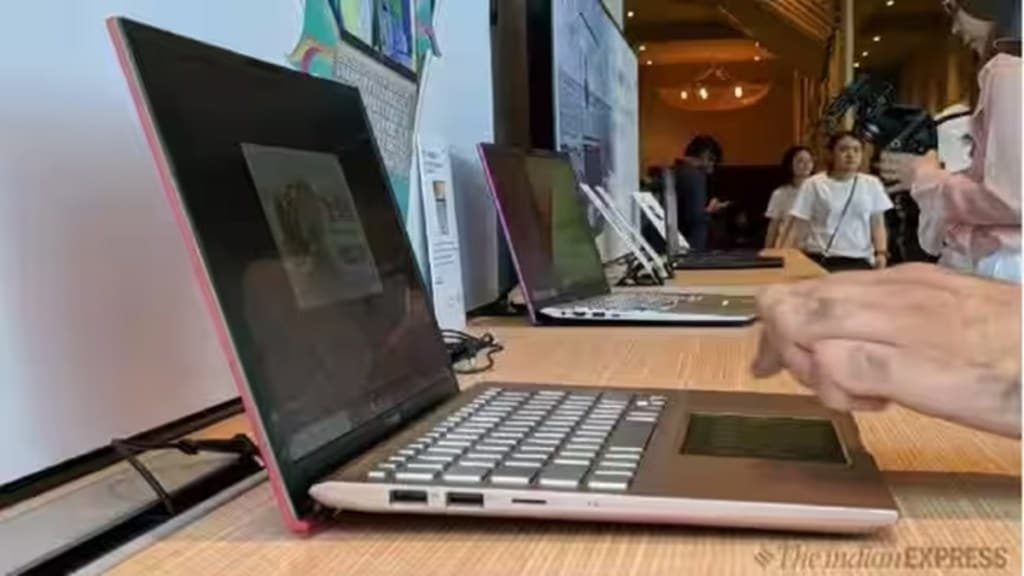A day after it surprised the tech hardware industry and consumers by imposing import restrictions on laptops, tablets and most personal computers, the government on Friday said the new licensing rule will take effect only after a transition period.
“There will be a transition period for this to be put into effect which will be notified soon,” minister of state for electronics and information technology Rajeev Chandrasekhar said at microblogging platform X. Official sources said the government is considering to put the restrictions in abeyance for one to three months.
The sudden relaxation of the decision followed the IT hardware giants’ stance that, the licensing requirements would create severe supply constraints for these products in the domestic market at least in the short term, as domestic manufacturing capacities are hardly in place. Justifying the import curbs, Chandrasekhar said the government’s intention was to ensue that “India tech eco-system uses trusted and verified systems only.”
The government had cited “security concerns” – while 90% of these products are now imported, China is the largest supplier – for the unexpected move, but it is believed that the move was also intended to force the global IT hardware companies to start local manufacturing without any further delay.
The government had announced a modified version of IT Hardware production-linked incentive scheme in May with an outlay of `17,000 crore. While the deadline for companies to apply for PLI-IT Hardware 2.0 is August 30, only HP and another company, the name of which is not yet disclosed, has so far sought to join the scheme, where benefits are linked to milestones of incremental production. Till now, about 44 companies have registered themselves on the official portal for the scheme.
In the earlier version of the Rs 7,350-crore PLI scheme, applications of 14 companies including Dell, ICT (Wistron), Rising Stars Hi-Tech (Foxconn), Lava, Dixon, and Optiemus Electronics, were approved. However, only two companies – Dell and Bhagwati – were able to meet FY22 targets.
India’s imports of “computers and laptops” stood at $14.1 billion in FY23, while the total inward shipments of electronic goods were to the tune of $73.5 billion. In “personal computer” (desktop, laptop, palmtop) imports of $5.3 billion in the last financial year, items worth $4.1 billion came from China.
According to the Thursday’s DGFT notification, import of the specified electronic products under the new licensing policy would be allowed for actual users and importers with prior experience.
Government sources told FE that once the licensing system comes into effect, after the transition period, each licence will be valid for one year, with the facility for renewal. A single business enterprise can get multiple licences through their various subsidiaries, the sources added.
Chandrasekhar said: “this is not at all about licence raj. It is about regulating imports to ensure trusted and verifiable systems and ensuring India tech eco-system uses trusted and verified systems only, (whether imported and/or domestically manufactured).” According to the minister, it is the government’s objective to reduce import dependency and increase domestic manufacturing of this category of products.
“We are in talks with companies and addressing their concerns. Once a company applies, the licence will be given as quickly as five minutes,” an official source said, adding that this will not increase the prices of such devices or lead to supply shortage.
A senior commerce ministry official said on Friday that the restrictions would help the government replicate the success achieved in manufacturing and assembly of smart phones in the IT hardware space too. Another intent of the move, the official said, is to address trade imbalance with China.
The official said there is excess capacity in manufacturing of personal computers, laptops and tablets and companies that have created these facilities have complained that imports from China are impacting their business plans. “So it (the import curbs) will help them to produce given their capacities,” he said.
Global exports of PC/laptops were $163 billion in 2022 of which China has a share of 81% followed by Germany at 3%. “China looks unbeatable as they make all components. Any new country willing to make laptops has to initially import most such components from China,” the commerce ministry official added.









